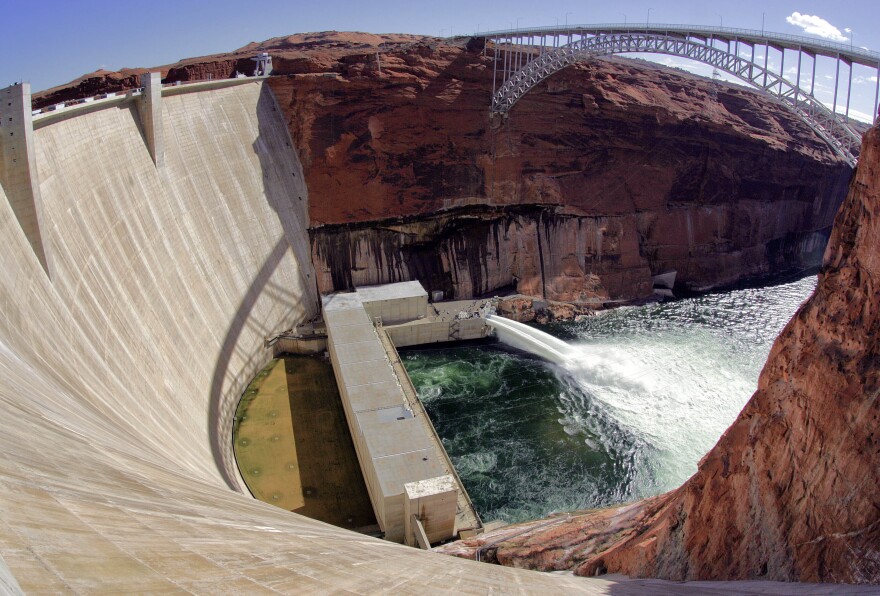Engineers at Glen Canyon Dam will release an artificial flood into the Grand Canyon starting today through Thursday. KNAU’s Melissa Sevigny reports, it’s the first beach-building flood in four years.
The water released through the dam will rise to nearly forty thousand cubic feet per second over the next few days. The flood is meant to spread sand downriver to rebuild beaches and protect cultural heritage sites.
Paul Grams is an ecologist with the U.S. Geological Survey. "A positive aspect of doing it this time of year is it’s doing it ahead of the main commercial and recreational boating season," he says. "The hope is that there will be rejuvenated sandbars for people to use over the summer."
It’s also hoped the high flow experiment will help aquatic insects and disrupt the spawning behavior of exotic fish.
The last artificial flood in springtime was more than a decade ago. Fall floods occurred regularly up until 2018, when fizzled monsoon seasons and drought stymied the long-running program.







